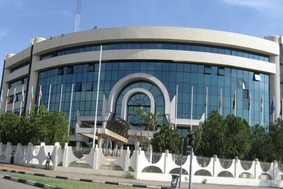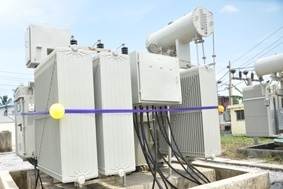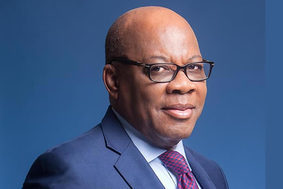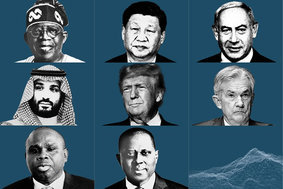More action needed to meet energy goals by 2030, new report finds
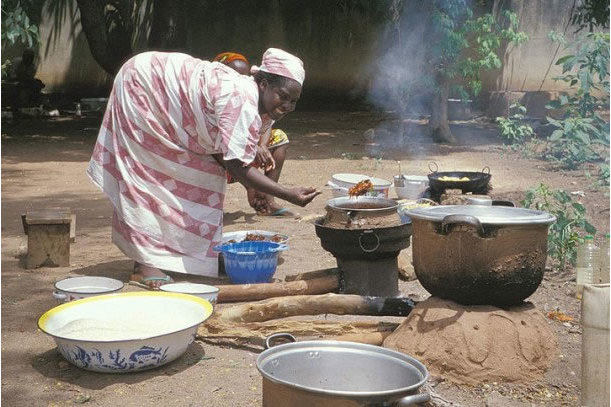
Feature Highlight
In Afghanistan and Nigeria, for example, access to clean cooking has been falling by about one percentage point annually.
The current pace of progress on three global energy goals -- access to electricity, renewable energy and efficiency -- is not moving fast enough to meet 2030 targets, according to the latest Global Tracking Framework (GTF) report, released on April 3 by the World Bank and the International Energy Agency, as part of the Sustainable Energy for All Knowledge Hub.
The report shows that the increase of people getting access to electricity is slowing down, and if this trend is not reversed, projections are that the world will only reach 92% electrification by 2030, still short of universal access.
Only energy efficiency made progress towards meeting these objectives; with energy savings during the 2012-2014 GTF reporting period enough to supply Brazil and Pakistan combined.
While the research found that most countries are not doing enough, some are showing encouraging progress, including Afghanistan, Cambodia, Kenya, Malawi, Sudan, Uganda, Zambia, and Rwanda. According to the statement released by the World Bank, these countries underscore that accelerating progress towards universal access is possible with the right policies, robust investments (both public and private) and innovative technology.
Rachel Kyte, CEO and Special Representative to the UN Secretary-General for Sustainable Energy for All, said: “If we’re to make access to clean, affordable and reliable energy a reality, action must be driven through political leadership. This new data is a warning for world leaders to take more focused, urgent action on access to energy and clean cooking, improving efficiency and use of renewables to meet our goals.”
To meet Sustainable Energy for All objectives, it is estimated that renewable energy investment would need to increase by a factor of 2-3, while energy efficiency investment would need to increase by a factor of 3-6. Estimates suggest that a five-fold increase would be needed to reach universal access by 2030.
Highlights of the report, with regard to access, include that 1.06 billion people were without access to electricity in 2014. Electrification rates are declining in low electricity access countries like Angola and the Democratic Republic of Congo. However, Afghanistan and Cambodia, amongst other developing countries, are progressing rapidly by making greater use of off-grid solar energy. And countries that are closing the access gap quickly will see improvements in education, health, jobs and economic growth.
On access to clean cooking, the number of people who use traditional, solid fuels to cook rose slightly to 3.04 billion (57.4 percent – barely up from 2012), indicating that efforts are lagging population growth. In Afghanistan and Nigeria, for example, access to clean cooking has been falling by about one percentage point annually.
On renewable energy, overall progress is modest. While new power generation technologies such as wind and solar are growing rapidly – representing a third of the expansion in renewable energy consumption in 2013–2014 – they are growing from a very small base.
Now in its third edition, the report draws from official national level data and provides harmonized analysis at the regional and global levels. The 2013 edition measured progress between 1990 and 2010, while the 2015 report focused on progress from 2010–2012.
The Sustainable Energy for All Global Tracking Framework is produced jointly by the World Bank’s Energy and Extractives Global Practice, the World Bank’s Energy Sector Management Assistance Program (ESMAP), and the International Energy Agency, and is supported by 20 other partner organizations and agencies. Starting in 2018, the GTF will move to an annual rather than biennial cycle.
Other Features
-
The best sites to buy and sell Bitcoin in Nigeria: A comprehensive ...
Buying and selling BTC doesn’t have to be a hassle. Check out to best sites to buy and sell Bitcoin in Nigeria ...
-
At 50, Olajide Olutuyi vows to intensify focus on social impact
Like Canadian Frank Stronach utilised his Canadian nationality to leverage opportunities in his home country of ...
-
Reflection on ECOWAS Parliament, expectations for the 6th Legislature
The 6th ECOWAS Legislature must sustain the initiated dialogue and sensitisation effort for the Direct Universal ...
-
The $3bn private credit opportunity in Africa
In 2021/2022, domestic credit to the private sector as a percentage of GDP stood at less than 36% in sub-Saharan ...
-
Tinubunomics: Is the tail wagging the dog?
Why long-term vision should drive policy actions in the short term to achieve a sustainable Nigerian economic ...
-
Living in fear and want
Nigerians are being battered by security and economic headwinds. What can be done about it?
-
Analysis of the key provisions of the NERC Multi-Year Tariff Order ...
With the MYTO 2024, we can infer that the Nigerian Electricity Supply Industry is at a turning point with the ...
-
Volcanic explosion of an uncommon agenda for development
Olisa Agbakoba advises the 10th National Assembly on how it can deliver on a transformative legislative agenda for ...
-
Nigeria and the world in 2024
Will it get better or worse for the world that has settled for crises?
Most Popular News
- IFC, partners back Indorama in Nigeria with $1.25 billion for fertiliser export
- CBN increases capital requirements of banks, gives 24 months for compliance
- CBN settles backlog of foreign exchange obligations
- Univercells signs MoU with FG on biopharmaceutical development in Nigeria
- Ali Pate to deliver keynote speech at NDFF 2024 Conference
- NDFF 2024 Conference to boost Nigeria’s blue and green economies



